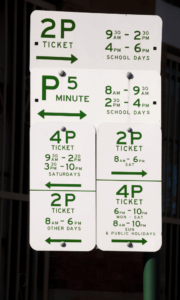Work & Development Orders (WDO) Explained

 Fines are the most common penalty issued for minor criminal matters. However, people’s personal circumstances or hardships can make paying a fine difficult or close to impossible. If you cannot pay a penalty notice, court fine, or a victim’s restitution order, you can request a Work and Development Order (WDO). The WDO scheme comes from a partnership between:
Fines are the most common penalty issued for minor criminal matters. However, people’s personal circumstances or hardships can make paying a fine difficult or close to impossible. If you cannot pay a penalty notice, court fine, or a victim’s restitution order, you can request a Work and Development Order (WDO). The WDO scheme comes from a partnership between:
- Revenue NSW,
- Legal Aid NSW,
- and the Department of Communities and Justice.
The Attorney General has issued guidelines for WDOs under s 99I of the Fines Act 1996.
What is a Work and Development Order (WDO)?
A WDO allows you to clear or pay off your fine through approved activities such as:
- unpaid or volunteer work,
- education or life skills courses,
- medical, mental health or drug and alcohol treatment,
- or financial counselling.
You need to find an ‘approved sponsor organisation’ or health practitioner to support your application.
Activities contribute to reducing your fines at different rates. The cut-out rates for common activities are:
- Educational, vocation or life skills courses – $50 per hour or $350 per 7-hour day
- Voluntary unpaid work – $30 per hour
- Financial or other counselling – $50 per hour or $350 per 7-hour day
- Medical, Mental Health, or Drug and Alcohol Treatment – $1,000 per month of compliance
However, you can only clear a maximum of $1,000 per month through activities.
Are there any excluded activities?
However, there are some activities that you cannot use as part of a WDO. These are:
- activities that are mandatory conditions of a court order;
- activities that are part of your eligibility for Centrelink benefits, or a mutual obligation, such as Work for the Dole;
- Attendance at school during normal school hours if you are of compulsory school age (up to 17); and
- Activities undertaken as part of a traineeship or apprenticeship, including attendance at TAFE.
Am I eligible for a WDO?
You can apply for a WDO if you fall into one of the following categories:
- aged under 18;
- receiving a Centrelink or DVA benefit;
- have a mental illness, intellectual disability or cognitive impairment;
- have a serious addiction to drugs, alcohol or volatile substances;
- experiencing serious financial hardship;
If you do not fit into any of these categories, you may still be able to apply if there are exceptional circumstances.
If your application is rejected, you can appeal the decision by applying to the Hardship Review Board.
Where do I sign up?
Many kinds of organisations sponsor WDOs, including government agencies, not-for-profit organisations, and health practitioners. To learn more, Revenue NSW has a portal where you can search for sponsors: https://www.revenue.nsw.gov.au/fines-and-fees/advocates/wdo-portal
Once you find a sponsor, they can help you with completing the lodging the application.
What happens if my WDO activity isn’t working for me?
Revenue NSW can change your WDO if your circumstances change, or you and your approved sponsor agree to include further enforcement orders or add or remove programs.
Revenue NSW may also change or cancel your WDO if:
- Your finances improve and you no longer fit the eligibility criteria;
- You do not comply with the WDO; or
- You provide false or misleading information in your WDO application.
Ultimately, Revenue NSW will take reasonable steps to talk to your sponsor before changing or cancelling your WDO. You will also be given at least 4 weeks to challenge any decision to change or cancel your WDO.
What happens if I can’t get a Work & Development Order?
If you are not eligible for a WDO or cannot complete a WDO, there are still options available to help you pay your fine.
In many instances, you will be able to set up a payment plan with Revenue NSW if you cannot pay in full by the due date. You may also apply for a fine reduction or debt write-off if certain circumstances apply. Fine reductions are generally available for minor offences like:
- parking offences,
- minor public transport offences such as not producing proof of concession entitlement,
- or pedestrian offences like jaywalking.
For example, debt write-offs cancel your debt, so you do not have to pay. They are available where you are suffering severe hardship and are unable to pay by instalments or complete a WDO.
Visit the Revenue NSW website for more information on your options if you have difficulty paying a fine.

